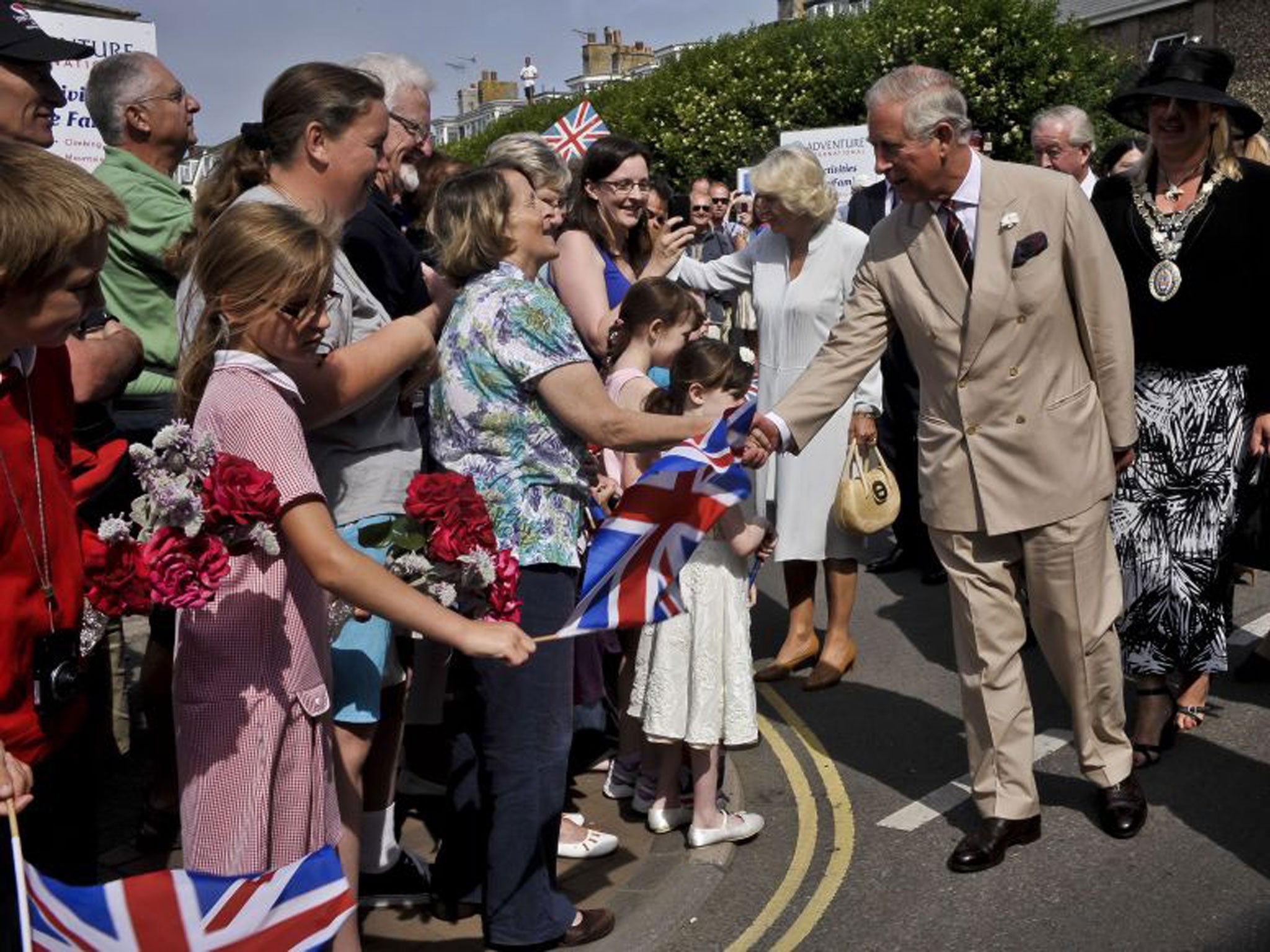Senior aide William Nye defends Prince Charles over tax-exempt status for Duchy of Cornwall estate
William Nye claims Duchy of Cornwall’s £847m property empire is a ‘force for social good’

The most senior aide to the Prince of Wales denied on Monday that the landed estate which pays the heir to the throne £19m a year is a “medieval anomaly” and insisted its tax-exempt status was not “unfair”.
William Nye, the private secretary to Charles, told the House of Commons Public Accounts Committee that the Duchy of Cornwall, which presides over a £847m property empire, was a force for social good and could not be compared to a conventional corporation or commercial entity.
The scrutiny of the Prince’s tax status, under which he voluntarily pays income tax on the Duchy’s annual surplus but the estate itself is exempt from capital gains and corporation taxes, follows stinging criticism by the same committee of tax avoidance by companies such as Amazon, Google and Starbucks.
In a rare clash between the legislature and the Crown, Mr Nye was repeatedly asked to justify the status of the Duchy, established in the 14th century by Edward III to provide an income to the heir to the throne, as a “private estate”, despite being immersed in complex investments and property deals.
The Independent revealed last month that among the Duchy’s recent and confidential investments on behalf of the famously aesthetic Prince Charles is a sprawling £38m supermarket distribution hub used by Waitrose in Milton Keynes.
Research by Channel 4’s Dispatches programme shows that his mother, through the Crown Estate which holds land on behalf of the monarch, also owns an adjoining warehouse on the same industrial estate used as a distribution centre by John Lewis.
During a two-hour grilling by MPs, Labour’s Nick Smith suggested that the duchy was benefiting from the advantages of a multimillion pound corporation but was failing to meet its duties as an organisation making a considerable annual surplus from its investments. The Duchy earlier this month reported a 4 per cent increase in the surplus it pays to Charles, who yesterday embarked on his annual three-day tour of Devon and Cornwall by visiting Bude.
The Prince last year received an annual income from the duchy of £19m, on which he paid £4.4m in income tax and VAT. The estate’s income included £1.3m in rent from Dartmoor Prison and £2m from Waitrose for the use of the Milton Keynes warehouse.
Mr Smith, MP for Blaenau Gwent, said: “If it looks like a duck and quacks like a duck, and swims like a duck you sort of assume it’s a duck. Given the Duchy of Cornwall looks and behaves like a corporation with income from complex investments. And quacks like a corporation with a council including the great and good from banking.
“On the face of it many of my constituents would say the Duchy should pay corporation tax and capital gains tax. Aren’t my constituents being reasonable?”
Mr Nye repeatedly underlined the “very unusual” status of the Duchy, denying assertions from the committee chair Margaret Hodge that it acted as public body by providing an income for the heir to the throne and yet benefited from exemptions not available to private companies.
The Prince’s private secretary said: “Essentially it’s a set of properties that belong to the Duke of Cornwall, the fact that it’s a large set of properties and its worth a lot of money doesn’t per se make it a corporation. And the memorandum of understanding establishes that it’s not a corporation subject to corporation tax.”
MPs held up the example of a partnership between the prince and the Dorset energy firm, JV Energen, in building a commercial-scale anerobic digester, as evidence of the Duchy gaining an unfair advantage over competitors. Despite owning a 54 per cent share of the venture, the Prince - as Duke of Cornwall – does not pay corporation tax on its multimillion pound earnings.
Mr Nye, who denied a claim from the Labour MP Austin Mitchell that the Duchy was a “medieval anomaly transformed into a modern business,” said the estate was managed to provide a last income to all heirs to the throne and held doing “some social good” as one of its aims.
Join our commenting forum
Join thought-provoking conversations, follow other Independent readers and see their replies
Comments